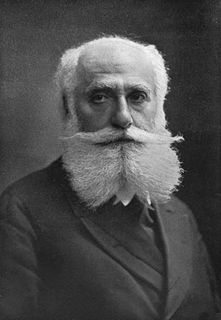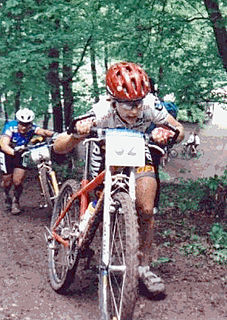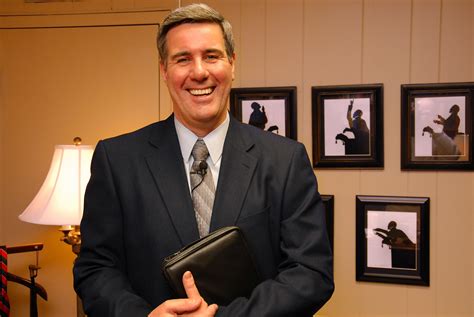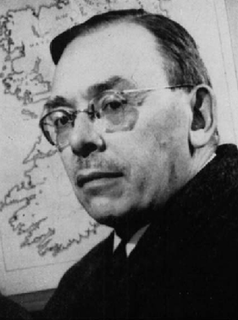Top 715 Discoveries Quotes & Sayings - Page 11
Explore popular Discoveries quotes.
Last updated on September 19, 2024.
The time will come when diligent research over periods will bring to light things which now lie hidden...Many discoveries are reserved for ages still to come, when memories of us will have been effaced. Our universe is a sorry little affair unless it has something for every age to investigate. nature does not reveal her mysteries once and for all.
Evolution is one of the most powerful and important ideas ever developed in the history of science. Every question it raises leads to new answers, new discoveries, and new smarter questions. The science of evolution is as expansive as nature itself. It is also the most meaningful creation story that humans have ever found.
It is interesting to transport one's self back to the times when Astronomy began; to observe how discoveries were connected together, how errors have got mixed up with truth, have delayed the knowledge of it, and retarded its progress; and, after having followed the various epochs and traversed every climate, finally to contemplate the edifice founded on the labours of successive centuries and of various nations.
Hysteria and degeneration have always existed; but they formerly showed themselves sporadically, and had no importance in the life of the whole community. It was only the vast fatigue which was experienced by the generation on which the multitudes of discoveries and innovations burst abruptly, imposing on it organic exigencies greatly surpassing its strength, which created favourable conditions under which these maladies could gain ground enormously, and become a danger to civilization.
We must remember when we speak of the "negativism" of the toddler that this is also the child who is intoxicated with the discoveries of the second year, a joyful child who is firmly bound to his parents and his new-found world through ties of love. The so-called negativism is one of the aspects of this development, but under ordinary circumstances it does not become anarchy. It's a kind of declaration of independence, but there is no intention to unseat the government.
There are kind of two kinds of awards you can get as a scientist. One is Nobel-like in character: it's for one big thing, for a big revolutionary discovery. And it's wonderfully well known, and of course every scientist would love to get a Nobel prize. And there's a few other similar awards. They're for individual blockbuster discoveries.
And how we become like our parents! How their scorned advice - based, we felt in our superiority, on prejudices and muddled folk wisdom - how their opinions are subsequently borne out by our own discoveries and sense of the world, one after one. And as this happens, we realise with increasing horror that proposition which we would never have entertained before: our mothers were right!
I was walking late one night along a tree-lined path; a chestnut fell at my feet. The noise it made as it burst, the resonance it provoked in me, and an upheaval out of all proportion to this insignificant event thrust me into miracle, into the rapture of the definitive, as if there were no more questions-only answers. I was drunk on a thousand unexpected discoveries, none of which I could make use of. ... This is how I nearly reached the Supreme. But instead I went on with my walk.
The man who is striving to solve a problem defined by existing knowledge and technique is not, however, just looking around. He knows what he wants to achieve, and he designs his instruments and directs his thoughts accordingly. Unanticipated novelty, the new discovery, can emerge only to the extent that his anticipations about nature and his instruments prove wrong... There is no other effective way in which discoveries might be generated.
The lapse of ages changes all things - time - language - the earth - the bounds of the sea - the stars of the sky, and everything 'about, around, and underneath' man, except man himself, who has always been and always will be, an unlucky rascal. The infinite variety of lives conduct but to death, and the infinity of wishes lead but to disappointment. All the discoveries which have yet been made have multiplied little but existence.
I feel like an old-fashioned mountain climber when I am making discoveries, seeing something for the first time, realizing that no human before me has ever seen what I am seeing. It takes your breath away - for just a moment, you feel a pause in time, as you know you are crossing a boundary into a new realm of knowledge.
The theory of free speech, that truth is so much larger and stranger and more many-sided than we know of, that it is very much better at all costs to hear everyone's account of it, is a theory which has been justified on the whole by experiment, but which remains a very daring and even a very surprising theory. It is really one of the great discoveries of the modern time.
I also made two very important discoveries as time went on. In the first place, I discovered that making money was easy. I had been led to believe that money and possessions would insure me a life of happiness and peace of mind. So that was the path I pursued. In the second place, I discovered that making money and spending it foolishly was completely meaningless. I knew that this was not what I was here for, but at that time I didn't know exactly what I was here for.
It is characteristic of fundamental discoveries, of great achievements of the intellect, that they retain an undiminished power upon the imagination of the thinker. The memorable experiment of Faraday with a disc rotating between two poles of a magnet, which has borne such magnificent fruit, has long passed into every-day experience; yet there are certain features about this embryo of the present dynamos and motors which even today appear to us striking, and are worthy of the most careful study.
New generations of humans inherit the acquired discoveries of generations past, allowing cosmic insight to accumulate without limit. Each discovery of science therefore adds a rung to a ladder of knowledge whose end is not in sight because we are building the ladder as we go along. As far as I can tell, as we assemble and ascend this ladder, we will forever uncover the secrets of the universe - one by one.
For, besides, that many persons find too sensible an interest in perpetually recalling such topics; besides this, I say, the motive of blind despair can never reasonably have place in the sciences; since, however unsuccessful former attempts may have proved, there is still room to hope, that the industry, good fortune, or improved sagacity of succeeding generations may reach discoveries unknown to former ages.
And yet we constantly reclaim some part of that primal spontaneity through the youngest among us, not only through their sorrow and anger but simply through everyday discoveries, life unwrapped. To see a child touch the piano keys for the first time, to watch a small body slice through the surface of the water in a clean dive, is to experience the shock, not of the new, but of the familiar revisited as though it were strange and wonderful.
The passion for exploration and discovery, the hunger to learn all things about all aspects of the physical world, the great and preposterous optimism that held that such truths were in fact discoverable, its dazzling sophistication and its occasional startling innocence; an age in which geographical and scientific discoveries surpassed anything previously dreamt of, and yet an age in which it was still, just barely, possible to believe in mermaids and unicorns - these remarkable traits so characterized the British 18th century
You could be a poet, an artist, a comedian - if you're in the culture of innovation then you embrace those who do and you're going to protect the science curriculum in the classroom because you understand the meaning and the value of it. And science discoveries don't scare you. You say, "Give me more science", not less. "Give me more technology", not less.
To estimate the value of Newton's discoveries, or the delight communicated by Shakespeare and Milton, by the price at which their works have sold, would be but a poor measure of the degree in which they have elevated and enchanted their country; nor would it be less grovelling and incongruous to estimate the benefit which the country has derived from the Revolution of 1688, by the pay of the soldiers, and all other payments concerned in effecting it.
The source of innovation is freedom. All we have - new knowledge, invention - comes from freedom. Discoveries and new knowledge come from freedom. When somebody is responsible only to himself, [has] only himself to satisfy, then you'll have invention, new thought, now product, new design, new ideas.
For Jews, the Messiah has never come; for Christians, He has come but once; for modern man, He appears and disappears with increasing rapidity. The saviors of modern man, the "scientists" who promise salvation through the "discoveries" of ethology and sociology, psychology and psychiatry, and all the other bogus religions, issue forth periodically, as if selected by some Messiah-of-the-Month Club.
The discoveries of science, the works of art are explorations - more, are explosions, of a hidden likeness. The discoverer or artist presents in them two aspects of nature and fuses them into one. This is the act of creation, in which an original thought is born, and it is the same act in original science and original art.
Socrates said, our only knowledge was
"To know that nothing could be known;" a pleasant
Science enough, which levels to an ass
Each Man of Wisdom, future, past, or present.
Newton, (that Proverb of the Mind,) alas!
Declared, with all his grand discoveries recent,
That he himself felt only "like a youth
Picking up shells by the great Ocean-Truth."
We live in an era when established values are no longer valid, when prodigious discoveries are being made every year, when catastrophes of unbelievable proportions occur weekly. In ancient Greek the word “chaos” means “gaping void” or “yawning emptiness.” The most effective response to the chaos in our lives is the creation of new forms of literature, music, poetry, art and cinema.
Nature first, then theory. Or, better, Nature and theory closely intertwined while you throw all your intellectual capital at the subject. Love the organisms for themselves first, then strain for general explanations, and, with good fortune, discoveries will follow. If they don't, the love and the pleasure will have been enough.
The strain of constant adaptation to so many fearful events and discoveries is already too much to bear with sanity; one has to keep pretending to slip successfully into the new mould; a time will come when the tailored and camouflaged mind breaks beneath the burden; the stick insect in our brains no longer cares to resemble a twig on the same habitual human tree in the mere hope that it may survive extinction.
If criticism has made such discoveries as to necessitate the abandonment of the doctrine of plenary inspiration, it is not enough to say that we are compelled to abandon only a "particular theory of inspiration..." We must go on to say that that "particular theory of inspiration" is the theory of the apostles and of the Lord, and that in abandoning it we are abandoning them.
When NASA makes discoveries they are profound and they make headlines, everyone takes notice. It drives dialogue and, today, it would drive the blogosphere. It would drive the projects the kids do in school. So you wouldn't even need programs to try and stimulate curiosity. You wouldn't need programs to try to convince people that science literacy is good. Because they're going to want to participate on this epic adventure that we call space exploration.
The fact that science led me to spiritual insight is appropriate because the latest discoveries in physics and cell research are forging new links between the worlds of Science and Spirit. These realms were split apart in the days of Descartes centuries ago. However, I truly believe that only when Spirit and Science are reunited will we be afforded the means to a better world.
If any human being earnestly desire to push on to new discoveries instead of just retaining and using the old; to win victories over Nature as a worker rather than over hostile critics as a disputant; to attain, in fact, clear and demonstrative knowlegde instead of attractive and probable theory; we invite him as a true son of Science to join our ranks.
When God interrupts your life, He is calling you to follow Him in a new way. By breaking into your settled pattern, He is moving you to a new place where you can make fresh discoveries of His grace. Embracing God’s call is never easy, but this is where the pursuit of a God-centered life begins, and where the shame of a self-centered life is exposed.
My own experience is that the Bible is dull when I am dull. When I am really alive, and set in upon the text with a tidal pressure of living affinities, it opens, it multiplies discoveries, and reveals depths even faster than I can note them. The worldly spirit shuts the Bible; the Spirit of God makes it a fire, flaming out all meanings and glorious truths.
In the New Testament it is taught that willing and voluntary service to others is the highest duty and glory in human life. . . . The men of talent are constantly forced to serve the rest. They make the discoveries and inventions, order the battles, write the books, and produce the works of art. The benefit and enjoyment go to the whole. There are those who joyfully order their own lives so that they may serve the welfare of mankind.
When I make a film, I never stop uncovering mysteries, making discoveries. When I'm writing, filming, editing, even doing promotional work, I discover new things about the film, about myself, and about others. That is what I'm subconsciously looking for when shooting a film: to glimpse the enigmas of life, even if I don't resolve them, but at least to uncover them. Cinema is curiosity in the most intense meaning of the word.
[At DuPont,] I was very fortunate that I worked under men who were very much interested in making discoveries and inventions. They were very much interested in what they were doing, and they left me alone. And I was able to experiment on my own, and I found this very stimulating. It appealed to the creative person in me.
A man who falls straight into bed night after night, and ceases to live until the moment when he wakes and rises, will surely never dream of making, I don't say great discoveries, but even minor observations about sleep. He scarcely knows that he is asleep. A little insomnia is not without its value in making us appreciate sleep, in throwing a ray of light upon that darkness.
Human experience, which is constantly contradicting theory, is the great test of truth. A system, built upon the discoveries of a great many minds, is always of more strength, than what is produced by the mere workings of any one mind, which, of itself, can do very little. There is not so poor a book in the world that would not be a prodigious effort were it wrought out entirely by a single mind, without the aid of prior investigators.
Very high, very grand, and very wise is the ocean of God, the Water of Life. You went after the form and were lead astray. How can you see it? You abandoned the truth. Sometimes it is named "tree," sometimes "sun," sometimes "ocean," sometimes "cloud," one thing from which scores of discoveries arise, its slightest definition an everlasting life.
If the juices of the body were more chymically examined, especially by a naturalist, that knows the ways of making fixed bodies volatile, and volatile fixed, and knows the power of the open air in promoting the former of those operations; it is not improbable, that both many things relating to the nature of the humours, and to the ways of sweetening, actuating, and otherwise altering them, may be detected, and the importance of such discoveries may be discerned.
Infancy is the realm conveyed to us in dreams which look backward to the past. Adolescence, more like a work of art, is a prospective symbol of personal synthesis and of the future of humankind. Like a work of art that sets us on the pathway to new discoveries, adolescence promotes new meanings by mobilizing energies that were initially invested in the past.
Don't keep forever on the public road, going only where others have gone. Leave the beaten track occasionally and dive into the woods. You will be certain to find something you have never seen before. Of course it will be a little thing, but do not ignore it. One discovery will lead to another, and before you know it, you will have something worth thinking about to occupy your mind, and really big discoveries are the result of thought.
Philosophical studies are beset by one peril, a person easily brings himself to think that he thinks; and a smattering of science encourages conceit. He is above his companions. A hieroglyphic is a spell. The gnostic dogma is cuneiform writing to the million. Moreover, the vain man is generally a doubter. It is Newton who sees himself in a child on the sea shore, and his discoveries in the colored shells.
The influence of electricity in producing decompositions, although of inestimable value as an instrument of discovery in chemical inquiries, can hardly be said to have been applied to the practical purposes of life, until the same powerful genius [Davy] which detected the principle, applied it, by a singular felicity of reasoning, to arrest the corrosion of the copper-sheathing of vessels. ... this was regarded as by Laplace as the greatest of Sir Humphry's discoveries.
Discovery is new beginning. It is the origin of new rules that supplement, or even supplant, the old. Genius is creative. It is genius precisely because it disregards established routines, because it originates the novelties that will be the routines of the future. Were there rules for discovery, then discoveries would be mere conclusions.
What is it with science these days? Everyone is so quick to believe in it, in all these new scientific discoveries, new pills for this, new pills for that. Get thinner, grow hair, yada, yada, yada, but when it requires a little faith in something you all go crazy.' He shook his head, 'If miracles had chemical equations then everyone would believe.
In order to survive, an animal must be born into a favoring or at least tolerant environment. Similarly, in order to achieve preservation and recognition, a specimen of fossil man must be discovered in intelligence, attested by scientific knowledge, and interpreted by evolutionary experience. These rigorous prerequisites have undoubtedly caused many still-births in human palaeontology and are partly responsible for the high infant mortality of discoveries of geologically ancient man.
Erwin Schrodinger has explained how he and his fellow physicists had agreed that they would report their new discoveries and experiments in quantum physics in the language of Newtonian physics. That is, they agreed to discuss and report the non-visual, electronic world in the language of the visual world of Newton.
Walden - all his books, indeed - are packed with subtle, conflicting, and very fruitful discoveries. They are not written to prove something in the end. They are written as the Indians turn down twigs to mark their path through the forest. He cuts his way through life as if no one had ever taken that road before, leaving these signs for those who come after, should they care to see which way he went.
I never like to play for myself, and that is why I don't own a grand piano. To play for yourself is like looking at yourself in a mirror. I like to practice; that is to work at a task. But to play there must be an audience. New things happen when you play for an audience. You don't know what will occur. You make discoveries with the music, and it is always the first time. It is an exchange, a communion.
You may dazzle the mind with a thousand brilliant discoveries of natural science; you may open new worlds of knowledge which were never dreamed of before; yet, if you have not developed in the soul of the pupil strong habits of virtue which will sustain her in the struggle of life, you have not educated her, but only put in her hand a powerful instrument of self-destruction.
The principal problem is that textual data and material remains are often incomplete and sometimes lack adequate context, in order to know precisely how they correlate. Sometimes all we can say is that the textual data and the material remains are probably related but how exactly can't be said until additional discoveries are made.
The fundamental biological variant is DNA. That is why Mendel's definition of the gene as the unvarying bearer of hereditary traits, its chemical identification by Avery (confirmed by Hershey), and the elucidation by Watson and Crick of the structural basis of its replicative invariance, are without any doubt the most important discoveries ever made in biology. To this must be added the theory of natural selection, whose certainty and full significance were established only by those later theories.
For centuries, humans have said to horses, 'You do what I tell you or I'll hurt you.' Humans still say that to each other -- still threaten, force and intimidate. I'm convinced that my discoveries with horses have value in the workplace, in the educational and penal systems, and in the raising of children. At heart, I'm saying that no one else has the right to say 'you must' to an animal -- or to another human.
We are very lucky to be living in an age in which we are still making discoveries. It is like the discovery of America-you only discover it once. The age in which we live is the age in which we are discovering the fundamental laws of nature, and that day will never come again. It is very exciting, it is marvelous, but this excitement will have to go.
The advances of biology during the past 20 years have been breathtaking, particularly in cracking the mystery of heredity. Nevertheless, the greatest and most difficult problems still lie ahead. The discoveries of the 1970's about the chemical roots of memory in nerve cells or the basis of learning, about the complex behavior of man and animals, the nature of growth, development, disease and aging will be at least as fundamental and spectacular as those of the recent past.
As my old professor Carl Sagan said so often, 'When you’re in love, you want to tell the world.’ And I base my beliefs on the information and the process that we call science. It fills me with joy to make discoveries every day of things I’ve never seen before. It fills me with joy to know that we can pursue these answers. It is an astonishing thing that we are — you and I are one of the ways the universe knows itself.
I invented nothing new. I simply assembled the discoveries of other men behind whom were centuries of work. Had I worked fifty or ten or even five years before, I would have failed. So it is with every new thing. Progress happens when all the factors that make for it are ready, and then it is inevitable. To teach that a comparatively few men are responsible for the greatest forward steps of mankind is the worst sort of nonsense.























































